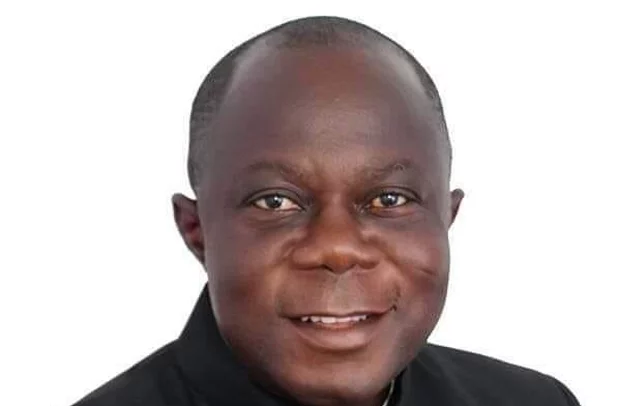Kwame Anyimadu-Antwi
The Minority in Parliament has launched a scathing attack on the Attorney General (AG) and Minister for Justice, Dr. Dominic Akuritinga Ayine, accusing him of a glaring conflict of interest following his decision to discontinue prosecution in the high-profile case involving former Finance Minister, Dr. Kwabena Duffour, and seven others.
The case, which stemmed from the collapse of uniBank during the 2018 banking sector clean-up, was abruptly dropped last week after the Attorney General entered a nolle prosequi, citing partial recovery of state funds as justification.
But the Minority, led by the Asante-Akyem Central Member of Parliament (MP) and Ranking Member on the Constitutional, Legal and Parliamentary Affairs Committee, Kwame Anyimadu-Antwi, has demanded answers and described the move as “a dangerous precedent for justice and accountability.”
At a press conference yesterday in Parliament, the Minority questioned whether Dr. Ayine’s past legal representation of Dr. Duffour constituted an ethical breach, now that he holds the office of Attorney General and has entered a nolle prosequi in the very same matter.
“Has Dr. Dominic Ayine ever acted as legal counsel for Dr. Kwabena Duffour in this specific case? If so, what ethical firewall exists to separate his former role as a defence lawyer from his current position as Attorney General?” Anyimadu-Antwi queried and added, “This is a classic case of conflict of interest, and the Attorney General must come clean.”
According to the Minority, the accusations stem from a pattern of opaque decision-making and legal gymnastics aimed at shielding political allies.
The decision to drop charges against Dr. Duffour, despite earlier claims of a GH¢5.7 billion shortfall in uniBank’s accounts, they said, “undermines public confidence in the rule of law.”
The Attorney General, had earlier yesterday, defended the move by claiming that accused persons had met a “60% recovery threshold,” a benchmark it said was sufficient to halt prosecution in the public interest.
However, the Minority has challenged the legality, origin, and transparency of this so-called “60:40” recovery rule.
“When did this policy become part of Ghana’s criminal justice system? Under what authority was it introduced? Even if GH¢800 million has been recovered, that still leaves a gaping GH¢4.9 billion unaccounted for. Since when did the theft of 60% of public funds become tolerable?” Mr. Anyimadu-Antwi demanded.
They further questioned the absence of a conviction or court-supervised plea bargain, arguing that existing legal provisions such as Section 35 of the Courts Act and the Plea Bargain Act require judicial oversight and a formal plea of guilty before restitution can be considered.
“The Attorney General did not follow any of these procedures. He neither pursued a court-supervised plea deal nor secured a conviction. This is a complete disregard for due process,” Mr. Anyimadu-Antwi said.
Citing Section 35 of the Courts Act, which allows an accused person to negotiate compensation only upon admission of guilt and subject to the court’s approval, the Minority contended that none of the conditions were met. They described the Attorney General’s justification as “legally incoherent and ethically troubling.”
Furthermore, the Minority questioned the mathematical and legal basis of the GH¢800 million allegedly recovered. They challenged how this figure suddenly came to represent 60% of the total loss when previous records pegged the shortfall at GH¢5.7 billion.
“Has the Attorney General unilaterally revalued the total loss from GH¢5.7 billion to GH¢1.2 billion by mere administrative fiat? If so, where is the documentation?” they asked.
The Minority warned that the Attorney General’s handling of the case risks eroding the deterrent value of prosecution in cases of economic crime and emboldening political actors who misuse public funds.
“What message are we sending to the public? That you can misappropriate billions, pay back a fraction, and walk free without even a conviction?” the caucus lamented.
The Minority urged the Select Committee on Constitutional and Legal Affairs to summon the Attorney General to publicly account for his decision. They also called on the Ghana Bar Association and General Legal Council to probe potential professional misconduct.
“Ghana’s justice system cannot be used as a shield for political allies. If the Attorney General fails to reverse this decision, we will consider legal action to challenge the nolle prosequi,” Mr. Anyimadu-Antwi warned.
The Minority urged civil society, traditional leaders, and all Ghanaians to speak up against what they see as the politicisation of the prosecutorial process.
“Justice must not only be done; it must manifestly be seen to be done. Anything less is a betrayal of the public trust,” the group said.
By Ernest Kofi Adu, Parliament House


